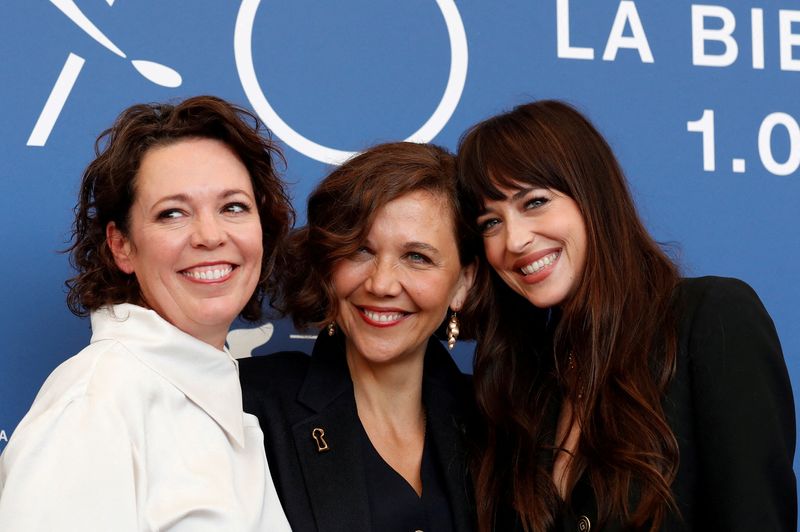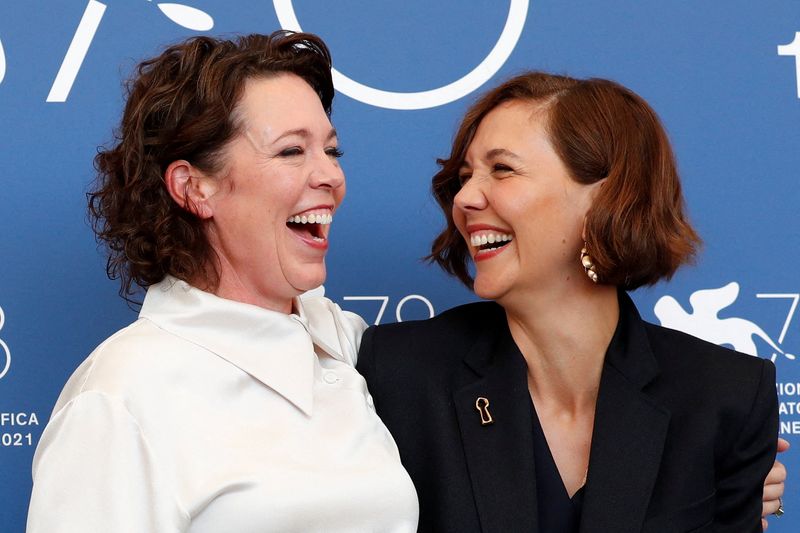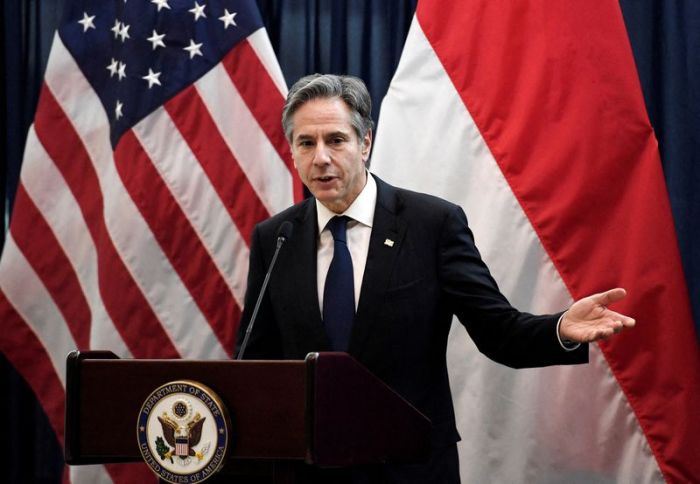LONDON (Reuters) – Maggie Gyllenhaal brings Elena Ferrante’s novel “The Lost Daughter” to the big screen for her directorial debut, a gripping drama about motherhood choices starring Oscar winner Olivia Colman.
Colman plays Leda, who while alone on holiday in Greece, befriends a young mother and daughter. The meeting brings back painful memories of her own decisions towards her children.
Gyllenhaal and Colman spoke to Reuters about the story and communicating with the famously secretive Ferrante.
Below are excerpts edited for length and clarity.
Q: Why did you pick this story for your feature directing debut?
Gyllenhaal: “When I read Ferrante for the first time, I guess I felt like she was saying things out loud that I knew to be true, but that I had never heard said out loud. And I found that both disturbing and comforting, and I thought, in fact more than that, it was kind of like … a really exciting shock.”
Q: What was it like liaising with Ferrante?
Gyllenhaal: “All my interactions with her, which have all been via email, have been everything you would want them to be. There’s something amazing about her being anonymous because she can be the fantasy that I want her to be. And she has been nothing but supportive at every turn … really intelligently, thoughtfully supportive.”
Q: What attracted you to the role and as a mother, did any aspects of the story resonate with you?
Colman: “I don’t think I’d ever seen anything where someone says ‘I left and it was amazing’ so I found it fascinating. Leda is very different to me … I couldn’t leave and I wouldn’t want to. But I do understand the thought process behind it and I think most parents will also feel the same. Everyone’s gone ‘if I could just have, oh my god, just an hour on my own’ though she took it to an extreme.”
Q: You filmed in Greece early in the pandemic when travel was difficult and formed a bubble, what was that like?
Colman: “We all fell in love with each other and we all got on really well and everyone had loved ones at home and so we were missing all of them and just had such a nice time … as soon as Maggie said ‘wrap’, people would go in the sea. I feel a bit bad that it was so nice.”
(Reporting by Hanna Rantala; Writing by Marie-Louise Gumuchian; Editing by Alexandra Hudson)


























